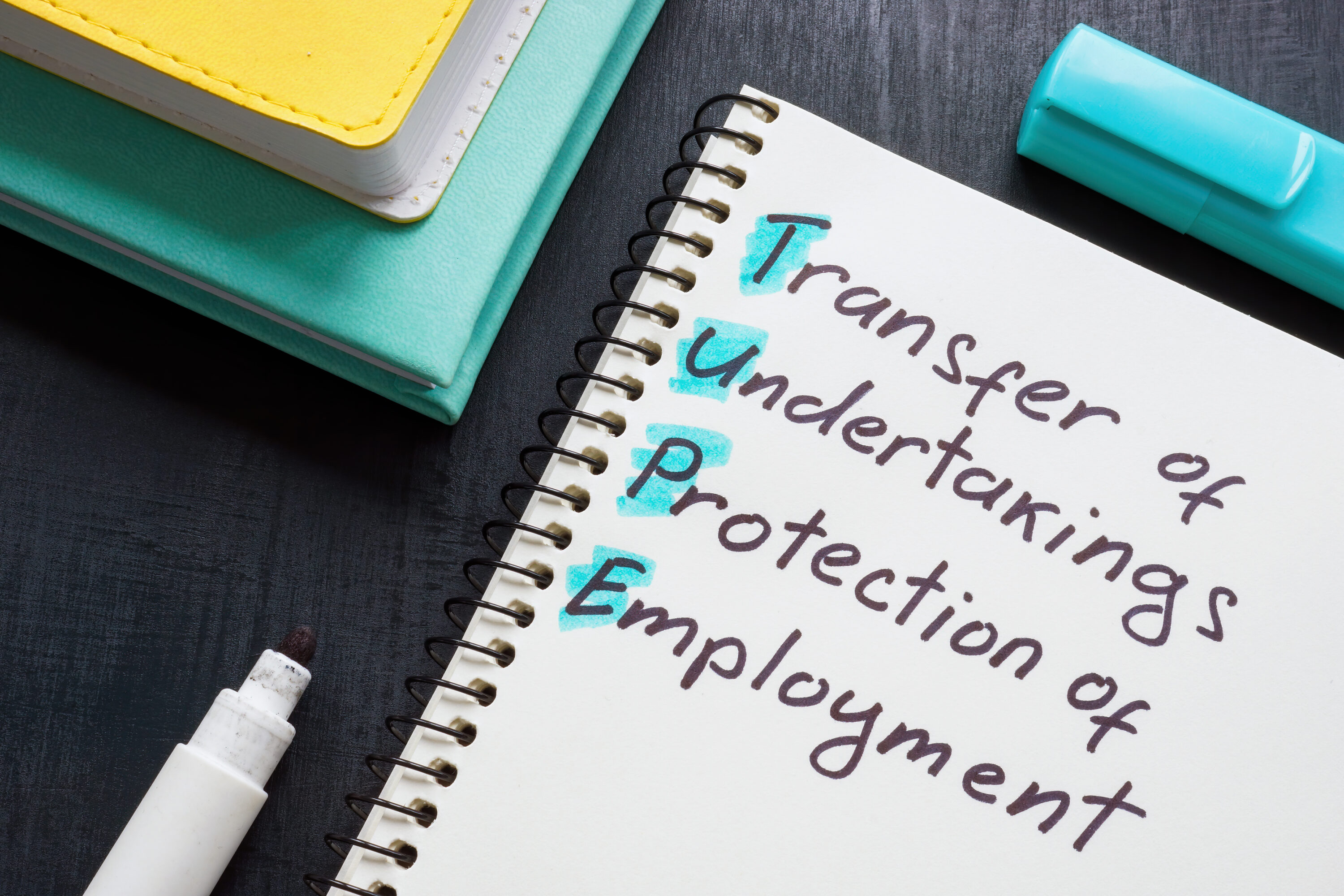
TUPE Transfers
Protect Your Rights During a TUPE Transfer—Hopkins Solicitors is Here to Help
When a business changes hands, employees may worry about job security and their rights. The TUPE regulations protect your employment terms and conditions, ensuring a smooth transition even when your employer changes. At Hopkins Solicitors, we understand the complexities of TUPE and are here to support you through every stage of the transfer process.
Why Choose Hopkins Solicitors?
- Expert TUPE Guidance: Our experienced employment law team specialises in TUPE transfers, ensuring your rights are protected during any business transfer.
- Client-Centric Approach: We prioritise your concerns, providing clear advice on your rights and representation during consultations to ensure your voice is heard.
- Comprehensive Legal Support: From redundancy to contract disputes, we’re here to guide you through each step, helping you navigate changes confidently and protect your employment rights.
Ready to Protect Your Employment Rights?
Don’t let a business transfer affect your job security or benefits. Hopkins Solicitors is here to ensure your rights are upheld through every stage of the TUPE process.
Take control of your future by reaching out to us today for trusted support.
TUPE stands for the Transfer of Undertakings (Protection of Employment) Regulations 2006. This law protects employees when part or all of a business is sold or transferred to a new employer. TUPE helps ensure that employees are not treated unfairly during these changes. One of its main roles is to keep your job and rights safe, even when the business changes hands.
With TUPE, employees keep the same terms and conditions of employment, such as pay, holiday time, and benefits. This means you won’t lose your rights just because the ownership of the business has changed.
At Hopkins Solicitors, we are experts in employment law. We know how to guide employees through complicated TUPE processes. We understand that these changes can be stressful, and we are here to offer clear advice and support. If you have questions about your rights or need help with a TUPE transfer, our experienced team is ready to assist you. Your rights matter, and we are committed to helping you protect them.
What is TUPE and When Does it Apply?
Business Transfers vs. Service Provision Changes
Under the Transfer of Undertakings (Protection of Employment) Regulations 2006 (TUPE), there are two main types of transfers. This includes business transfers and service provision changes. Business transfers happen when one company takes over another, like during a merger or acquisition. In this case, employees, assets, and responsibilities move to the new owner, and TUPE helps protect their rights.
Service provision changes happen when a company hires another business to do a service or brings that service back in-house. For example, if a company uses an outside cleaning service or decides to do the cleaning themselves again, TUPE may apply. In these situations, the employees working in that service will move to the new employer, ensuring they keep their rights and working conditions.
Some key factors help decide if TUPE applies. These include:
- The transfer of assets, which means selling physical items like equipment or buildings.
- The transfer of employees, where workers move to the new company.
- The transfer of business functions, meaning the work employees do is also handed over.
Who is Protected Under TUPE?
Under the Transfer of Undertakings (Protection of Employment) Regulations 2006 (TUPE), certain employees are protected when a business is transferred to a new employer. This protection covers employees who have a contract of employment. This means they work for the business directly and receive regular pay and benefits. It’s important to understand the difference between employees and workers. Employees have specific rights, such as holiday pay and sick leave, while workers have fewer rights.
TUPE does not protect everyone. For instance, agency workers, who work for a company through an agency, are not covered under TUPE. Also excluded are those on very short-term contracts or casual workers who do not have a consistent job with the company. These groups do not have the same rights as regular employees when it comes to job transfers.
Understanding who is covered by TUPE is important for employees and employers alike. If you are an employee who works for a business that is being transferred, TUPE helps protect your job and rights. At Hopkins Solicitors, we are here to provide expert advice and support to help you understand your rights under TUPE. We ensure you are well-informed and prepared during any business transfer.
Employee Rights Under TUPE
Continuity of Employment and Transfer of Terms
TUPE plays a crucial role in ensuring that employees’ rights are protected. This protection occurs when their business is transferred to a new employer. One of the main benefits of TUPE is that it guarantees the continuity of employment. This means that when a transfer occurs, employees keep their existing contracts, benefits, and seniority. Their length of service continues as if they had always been employed by the new employer. This is important for things like holiday entitlement and redundancy pay.
TUPE also provides strong legal protection against any changes to employees’ contracts simply because of the transfer. This means that the new employer cannot alter terms like pay, working hours, or benefits just because they have taken over the business. Any changes must be agreed upon by both the employee and the employer and cannot be made unilaterally.
This protection helps employees feel secure during a time of change. It allows them to focus on their work without worrying about losing rights or benefits. We are dedicated to helping employees understand their rights under TUPE. We ensure that their contracts and benefits remain intact during any business transfer.
Consultation and Information Obligations
Before a business transfer happens, employers must inform and consult their employees. This responsibility is important to ensure fairness and openness during the process. Employers need to share information about the transfer. This includes why it is happening, how it might affect employees, and any changes that could take place. Communication helps employees understand what might change and allows them to get ready for the transition.
During this consultation, employees have the right to voice their objections or concerns about the transfer. They can ask questions about how it will affect their jobs, work conditions, and job security. This open conversation is vital because it lets employees share their opinions. It also gives employers useful feedback to address any worries.
Employers must listen to these concerns and consider them before finalising the transfer. This consultation is not just a formality; it is a way to connect with employees and show that their views matter. At Hopkins Solicitors, we are dedicated to helping employees understand their rights in this process.
Dealing with Redundancy and Dismissal During TUPE
Unfair Dismissals During TUPE
When a business transfer happens under TUPE, any dismissals related to the transfer are automatically considered unfair. This means that employees cannot be dismissed simply because the business is changing hands. However, there is an exception. If the employer can show a valid reason related to economic, technical, or organisational (ETO) changes, the dismissal may be justified. This means that the employer must provide evidence to support their claim.
The ETO provision allows for legitimate dismissals in certain situations. For example, if a company is restructuring its workforce to reduce costs or improve efficiency, this can be a valid reason for dismissal. This might happen when a new employer decides to merge roles or eliminate positions that are no longer needed.
Other ETO reasons can include changes in the way work is done or the need for new skills that the existing workforce does not have. In these cases, the employer must clearly explain why the dismissal is necessary and how it relates to the changes brought about by the transfer.
Our team is here to guide employees through these challenging situations. We help them protect their rights and ensure that any dismissals are fair and justified.
Redundancy and Compensation
When a business is transferred under TUPE, employees may face redundancy if the new employer decides to make cuts. If this happens, employees have rights that protect them during the process. The new employer must follow fair procedures and provide proper notice before making anyone redundant. Employees are entitled to redundancy pay, which is calculated based on their age, length of service, and weekly pay. It’s important to know that if the redundancy is due to the transfer itself, employees may have a stronger case for claiming unfair dismissal.
If an employee believes their redundancy is unfair, they have several legal options. First, they can appeal the decision with their employer, explaining why they believe the redundancy is unjust. If the appeal does not resolve the issue, employees can take their case to an employment tribunal. This tribunal can review the circumstances of the redundancy and decide if it was handled fairly. If deemed unfair, the tribunal may order the employer to pay compensation.
Pension Rights and TUPE
Pension Transfers Under TUPE
When a business transfer occurs under TUPE, most occupational pension schemes are generally exempt from its protections. This means that employees do not automatically transfer their pension rights to the new employer. However, this does not mean that employees lose their benefits altogether. The new employer must provide a suitable alternative pension scheme that meets certain standards. This new scheme should offer benefits similar to those of employees before.
Employees have the right to understand how their pension rights are affected by the transfer. It’s important for them to ask questions and get clear information about the new pension scheme. Our expert team is dedicated to ensuring that employees are aware of their rights.
Handling Other Benefits
During a TUPE transfer, employees have rights that protect their other benefits. This includes sick leave, bonuses, and collective agreements. These benefits are typically maintained and should remain the same when the business changes hands. For example, if you have sick leave entitlement or a bonus plan in place, the new employer is required to honour these terms.
Collective agreements between employers and unions remain in effect after the transfer. This means that agreed terms for pay or working conditions continue without interruption. It’s important for employees to understand that their rights are protected throughout this process. We are here to help you with any questions or concerns you have regarding your benefits during a TUPE transfer.
How Hopkins Solicitors Can Help
At Hopkins Solicitors, we are dedicated to protecting your rights during TUPE transfers. Our expert team provides comprehensive support to ensure that you are informed. We treat everyone fairly throughout the process and help represent employees during consultations. This ensures their voices are heard and their concerns addressed.
If you face unfair dismissal or issues with your employment contract following a transfer, we are here to help. We can assist you in challenging these decisions. We understand the challenges of TUPE and are committed to guiding you through every step. Our services include reviewing your contract terms and negotiating with your employer. We also offer legal advice tailored to your situation. With our support, you can feel confident knowing that your rights are being upheld.
Conclusion: Understanding Your Rights in a TUPE Transfer
Understanding your rights during a TUPE transfer is crucial for your job security. TUPE provides important protections for employees. This ensures contracts, benefits, and working conditions remain intact. This is the case even when your employer changes. If you believe your rights are not being respected, it is essential to seek legal advice as soon as possible.
Our team can help you understand your rights and take action if needed. Whether you face unfair dismissals, contract disputes, or concerns about your working conditions, we are here to support you. Don’t hesitate to reach out for the assistance you deserve. With our help, you can understand the TUPE process confidently and protect your rights effectively.
Price Transparency
Price Transparency
If you feel your employers have treated you unfairly and you would like advice on what to do next we offer a fixed fee advice consultation for £500+VAT. During this meeting not only will you get detailed legal advice on your specific situation but we will also advise you of any potential future costs, should you choose to instruct us to act on your behalf, and we can set up a flexible payment plan to suit your budget.
Important Note on Legal Fees: if you have home insurance, it is worth looking closely at your policy as it may include employment legal expenses coverage which would cover all of our consultation fees.
Where you can get free employment law advice
Not everyone is in a position to pay for legal advice when they are having a dispute with their employer, if this is the position you are in there are two organisations that you can contact for help that will not charge you for initial advice:
Acas – the Advisory, Conciliation and Arbitration Service: They work with millions of employers and employees every year to improve workplace relationships. They are an independent public body that receives funding from the government and are a great starting point for employees and employers to get free advice.
Citizen’s Advice Bureau: They are a national charity and network of local charities that offer confidential advice online, over the phone, and in person, for free. Most cities and towns will have an office that you can visit or call, or visit their website for general advice you can read online.
FAQs
What is a TUPE transfer and how does it protect employees?
A TUPE transfer refers to the Transfer of Undertakings (Protection of Employment) Regulations. Which protects employees when a business is sold or transferred. It ensures that employees keep their jobs and the same terms and conditions after the transfer.
Can my employer change my contract during a TUPE transfer?
Generally, your employer cannot change your contract just because of the TUPE transfer. Your terms and conditions should stay the same. However, if the new employer has a valid reason related to economic, technical, or organisational needs, they may make changes.
What should I do if I am made redundant during a TUPE transfer?
If you are made redundant during a TUPE transfer, first check if the redundancy is fair. You may be entitled to compensation if it is deemed unfair. It’s a good idea to seek legal advice to understand your rights and options for challenging the redundancy.
Request a Callback
"*" indicates required fields
Meet the Team
Testimonials
-
I think I speak for us all here at Jeremias UK Ltd when I say, we definitely would like to renew our HopkinsHR retainer. You are worth you weight in gold!
Vicky Bak, Jeremias UK Ltd, 3rd January 2023
-
Very quick and friendly service, made a bad situation very easy for me to deal with.
Sophia Scarr, 14th September 2022
-
I was recommended to use Hopkins and found Elizabeth to be brilliant, she was clear with the advise and support throughout
Deran Stewart, 14th September 2022

